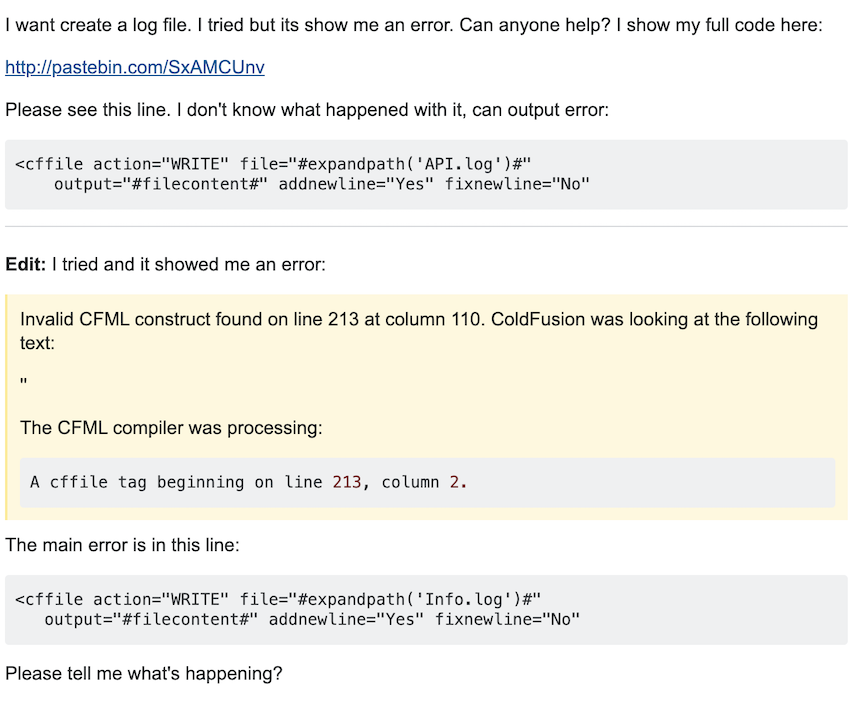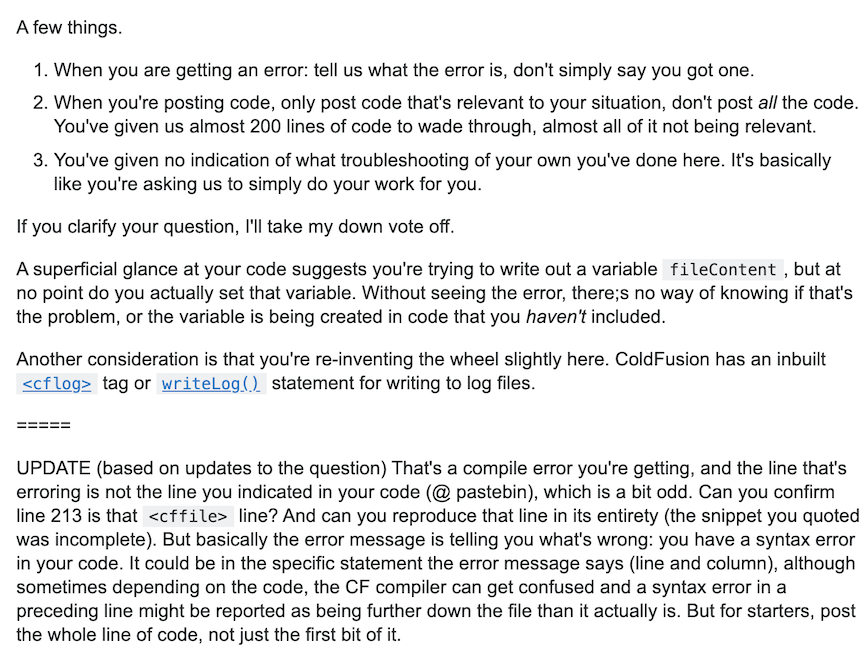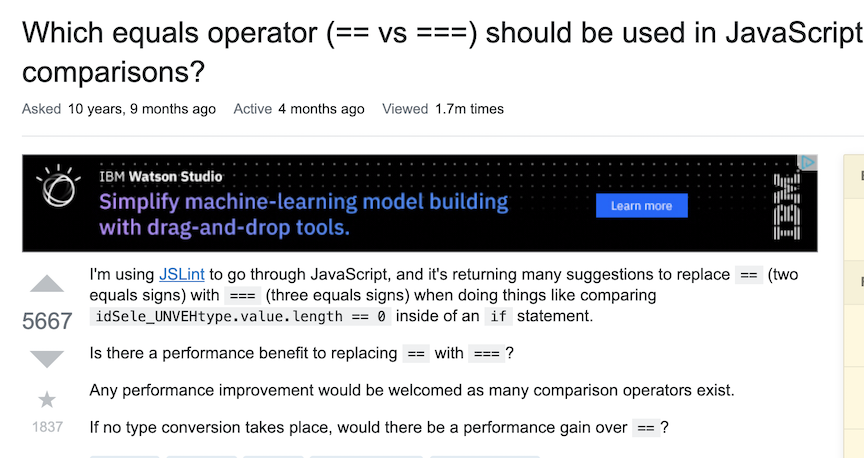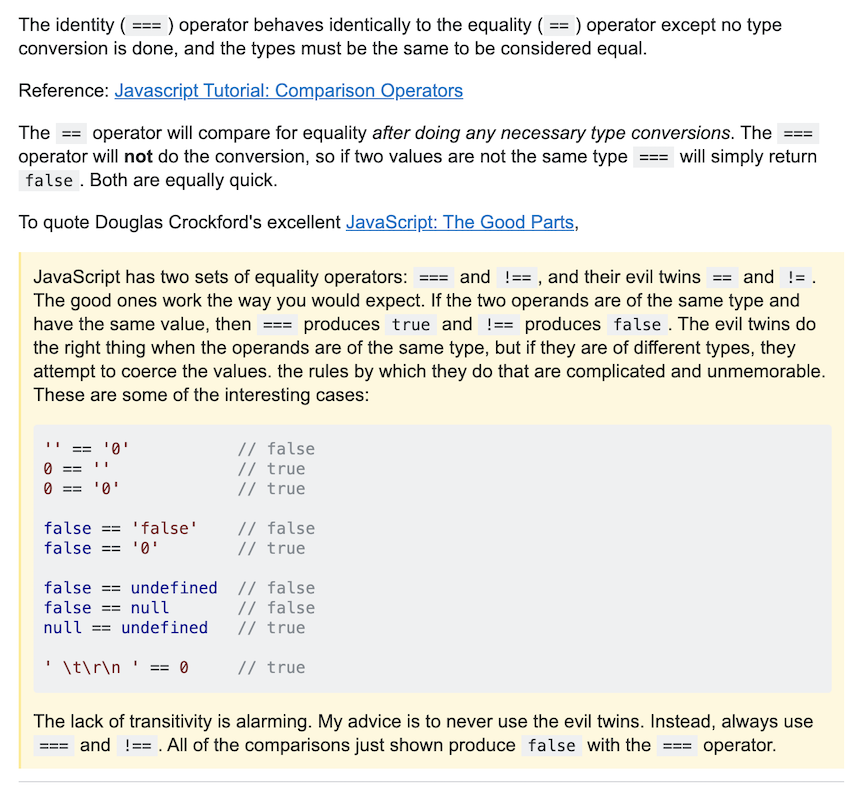There are Bad Questions
12 Sep 2019The phrase “there are no stupid questions” may lead you to believe that there are no bad questions and every question you have should be asked. This is completely false. There are definitely bad questions that are poorly worded, ill-informed and ambiguous. It is imperative to ask questions in an articulate, well-informed and clear manner because it makes the question easier to understand and answer for other people, and it gives you a higher chance of receiving a helpful answer to your query. So, for everyone’s sake only ask good questions.
The Consequences of Bad Questions
Take for example this question that comes from:
create contain file log coldfusion


The original question posed is extremely confusing and seems hastily posted. The person asking the question states that they want their code to create a log file but an error occurs. They then post a link to their code, and then they say to look at a specific line of code that’s there for unknown reasons. The original poster does not have what programming languages or tools they are using for this code. They at first didn’t have what error was occurring for them, and then they posted the error and a line of code, which they said was where the error was occurring. However, as pointed out by a respondent, the line of code that the original poster said is causing the error is a different line of code then where the error message states the error is occurring. The original poster also does not state anything they attempted to fix their code and just asks for help. Since the question is not currently marked as solved, I assume the original poster never found an answer to their question. This may be because their question is ambiguous and not descriptive, which is confusing and hard for people to solve.
The Rewards of Good Questions
To see a question that was asked in a clear and “smart” manner take this question from:
Which equals operator (== vs ===) should be used in JavaScript comparisons?


The question begins with some background information about how, while coding in JavaScript the poster was prompted to change their comparison operator == to ===. The poster follows this with a simple example of code that was prompted to be changed and then asks if there is a benefit to replacing == with ===. Unlike the previous question, this question gives relevant background information that gives context to the question, gives a quick example and then asks their question instead of just asking for help. Due to their question being articulately asked, the original poster was rewarded with multiple detailed responses to their question about the differences between the == and === comparison operators in JavaScript.
You Reap What You Sow
I personally know what it’s like to ask a bad question and be called out about it. This occurred when I emailed my TA concerning an error I was getting on a homework assignment. I sent him a copy of my entire code and simply put that an error occurs and I don’t know why. The TA was kind enough to politely tell me that I should put what error I was getting, what I had already tried up to that point and to only send him code relevant to the error. After checking the error I was getting and going through the part of my code that was causing the error, I found that I had made an easy to fix logic error in my code. This unfortunate exchange showed me that being able to communicate as a programmer is just as important as being able to code, and that the more effort you put into asking a question, the more effort others will put into answering it.